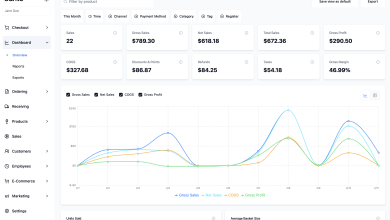
Today, where success hinges on the delicate balance of supply and demand, the majority of businesses often find themselves wrestling with the challenges of inventory and asset management. 86% of fraud cases reported in the workplace stem from asset misappropriation. Implementing a comprehensive asset management system can help prevent such misappropriation as per ACFE.
The implications loom large, especially for small-scale operations that cannot afford missteps. Whether it’s excessive stock levels or insufficient inventory, the repercussions can prove financially burdensome. This can lead to exorbitant storage expenses, frustrating stock shortages, and a lot more. Ineffective inventory or asset management translates to increased costs across the board – from storage expenses to procurement and, ultimately, to sales.
Enter Artificial Intelligence (AI). Let’s understand the role of AI in asset management.
Key Challenges Faced by Asset Managers
Asset managers face a multitude of challenges that can affect optimal performance and client satisfaction. It includes:
- Market Volatility: The nature of financial markets is totally unpredictable. It introduces significant hurdles in predicting and navigating investment opportunities. Market volatility has surged with fluctuations impacting investment strategies across various sectors.
- Risk Management: While managing different portfolios, effectively balancing risk and return is a continuous challenge for businesses. So, the majority of asset managers fail to maintain an appropriate risk-return profile in the face of market uncertainty.
- Regulatory Compliance: Managers must traverse changing regulatory environments, which necessitates ongoing updates and adherence to compliance requirements.
- Client Expectations: Meeting clients’ different requirements and expectations is a substantial challenge, given their varying risk tolerances and investment objectives.
How AI Leads to Better Investment Decisions?
Yes, it does. Asset managers can examine large datasets for market trends, risk assessment, and sentiment analysis. It also forecasts market trends, optimizes portfolios, and automates trading operations. AI in asset management delivers timely insights using advanced algorithms and machine learning. This, in turn, allows asset managers to make educated decisions and achieve superior investment outcomes.
How Asset Managers Use AI
Some of the core technologies used by AI and automation for asset management include:
Asset managers use machine learning algorithms to optimize investment portfolios. These algorithms use historical data, market patterns, and numerous financial indicators to determine the best asset allocations. A machine learning model can evaluate the risk-return profile of various assets. Furthermore, it can modify portfolio weights in response to changing market circumstances.
NLP is used to assess market sentiment by analyzing textual data. Asset managers utilize NLP algorithms to gauge public opinion and news mood about certain assets or markets. Managers can make better judgments if they understand how others feel. For example, if sentiment research indicates highly good news about a stock, it may affect the choice to buy or keep it.
DRL is used in algorithmic trading to assist computers gain insight into their actions and make better decisions. Asset managers use DRL to develop adaptive trading strategies. For example, a DRL model could learn to adjust trading parameters based on real-time market conditions. It can be either position sizes or entry/exit thresholds.
Utilizing blockchain technology, asset managers maintain transparent transaction records. The smart contracts (self-executing agreements with pre-defined terms) automate a range of operations. These contracts automate processes by automatically executing actions when predetermined conditions are met.
Statista states that the Robo-Advisors industry is anticipated to have 34.020 million consumers by 2027. These systems generate and manage varied portfolios based on consumer profiles, risk tolerance, and financial goals. Incorporating AI in investment, these platforms assess market dynamics regularly.
AI-powered risk management systems detect threats and other potential hazards in real-time. As per Future Market Insights, the worldwide AI in fraud management market is expected to be worth US$ 57,146.8 million by 2033. AI systems can identify strange patterns or abnormalities in financial transactions to suggest fraudulent conduct. Using AI-powered risk management solutions, it is easy to improve security and protect assets from diverse dangers.
Benefits of Using AI for Asset Management
AI has transformed asset management by offering novel applications that improve decision-making processes and optimize investment methods. Some of the major areas where AI is having a substantial impact are:
- Provides data-driven insights for informed investment decisions.
- Streamlines operations and reduces manual errors by automating routine tasks.
- Enables asset managers to analyze vast datasets in real-time to stay ahead of market trends and opportunities.
- Reduces operational costs associated with manual portfolio management using automation through AI, such as robo-advisors.
- Identifies and mitigates hazards quickly, improving the overall security and stability of asset portfolios.
- Streamlines regulatory compliance by automating operations and maintaining conformance to changing industry requirements.
- Customizes investment strategies to individual client needs, enhancing customer satisfaction.
- Analyzes transactions, swiftly detecting and preventing fraudulent activities in asset management.
Role of AI in Elevating Investment Intelligence
As AI continues to drive digital transformation, we anticipate more seamless client interactions and AI assistance in operational tasks, and the presence of friendly chatbots providing swift responses.
44% of companies are planning on making serious automation investments and integrating AI technology into their day-to-day operations as per IBM.
So, what’s the takeaway? AI transcends mere numerical analysis; it’s about elevating investment intelligence, enhancing strategy flexibility, and streamlining client communications. The future of asset management lies in the fusion of technology and human insight, promising not only innovation but also a financial landscape that’s personalized, efficient, and adaptable to change.
With the right AI consulting services, we can embrace a future where investments are guided by the harmonious integration of technological innovation and human expertise. Brace yourself for a new chapter in finance!








